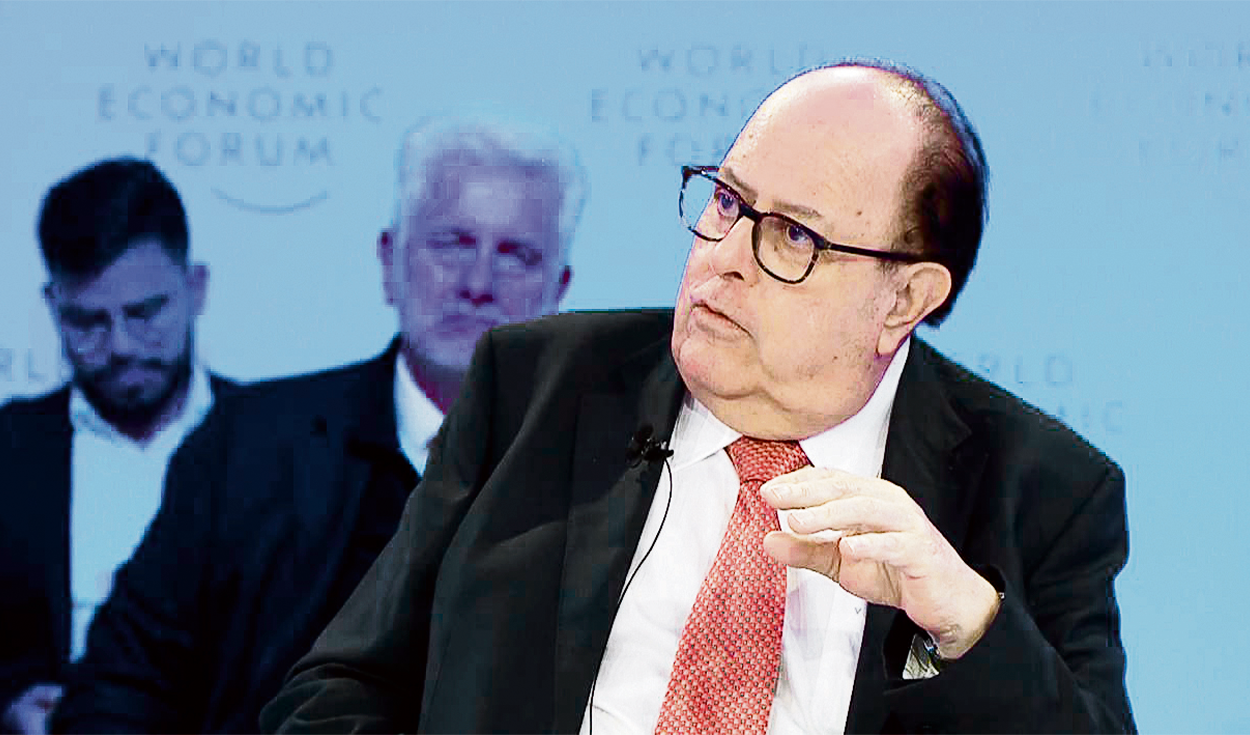
The event at the World Economic Forum, organized in the city of Davos (Swiss), has served to make the president of the Central Bank of Peru (BCRP), Julio Velarde, recognize that the recovery of the country’s GDP is subject to profound political reforms that resolve the succession of authorities.
The Peruvian banker assured that Our country has had, since 2016, an excessive change of rulers “within constitutional rules.” He explained that, that year, “two right-wing candidates went to the second round; a more liberal one [Pedro Pablo Kuczynski]who won the presidency, and another more conservative [Keiko Fujimori]who presided over the Congress.
“When they are often of the same ideological bias, the confrontations are greater,” said the head of the issuing entity.
Velarde considered that “once these nuclear weapons are used” – presidential vacancy and closure of Congress –, there is a conflict situation that can only be resolved by changing the rules, today established in the Constitutionand that “that change has to happen.”
Before a panel also made up of Argentine Foreign Minister Diana Mondino, the president of the BCRP stressed that economic stability—unlike political stability—has been maintained in the last eight years. However, he assured that reforms such as the one promoted in 2008 by former Ecuadorian president Rafael Correa are necessary to provide predictability and financial stability to the market.
“I do not defend the Ecuador model, but probably [en el Perú] there is a need for a change in fundamental rules [mayores candados para el relevo de autoridades]because stability, finally, has been maintained,” he concluded.
The problem is growing
At another time, Julio Velarde lamented that, despite the decline in inflation in Latin America and the Caribbean—in the case of Peru, it is close to returning to its target range—some large economies on the continent show a certain level of stagnation. For this reason, he insisted that “growth is the problem.”
To alleviate this situation, the head of the BCRP demanded urgent changes in the public management of the countries of the region, given that a large part of them “has governance and quality problems in public services”. He explained that, in the 70s, the weight of Latin America’s GDP was three times that of Asia, but currently it is only a third.
Davos 2024 and the challenges for the region
The head of the BCRP was a member of the panel on ‘Economic realism in Latin America’ at Davos 2024.
In the session, challenges were analyzed macroeconomic of the region and how to reconcile them with internal priorities and sustainable development.
In addition, the financial and investment needs of the countries and their impact on fiscal pressures were reviewed.
Source: Larepublica
Alia is a professional author and journalist, working at 247 news agency. She writes on various topics from economy news to general interest pieces, providing readers with relevant and informative content. With years of experience, she brings a unique perspective and in-depth analysis to her work.












